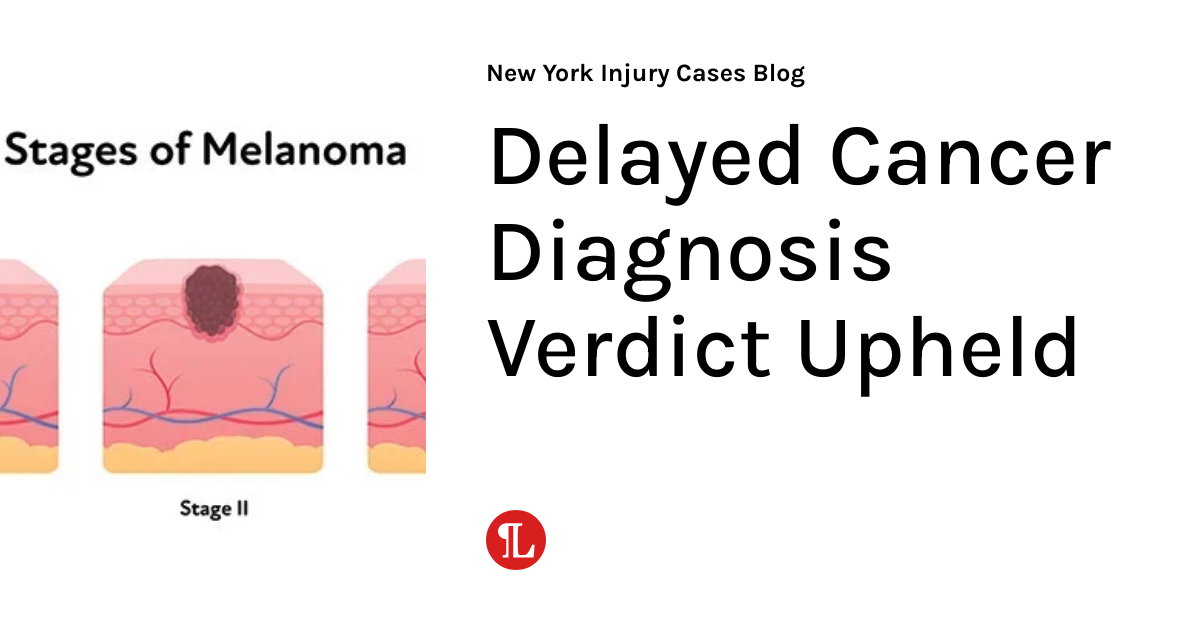On April 1, 2016, Jamie Hawkins went to her dermatologist at New York Dermatology & Mohs Surgery Group in Commack to check out a skin lesion on her head. She was seen by a physician’s assistant who found nothing suspicious and advised her it was nothing to be concerned about.
On May 19, 2017, after nagging concerns about the lesion, Ms. Hawkins consulted a new dermatologist who took a biopsy and discovered that she had a malignant melanoma on her scalp.
Ms. Hawkins, then 30 years old, sued her former dermatology group and the physician’s assistant claiming that they were negligent when, on April 1, 2016, they failed to clinically identify a likely melanoma on her scalp.
Plaintiff claimed that defendants’ malpractice resulted in a 13 month delay in diagnosis that allowed the cancer to grow from Stage 1 to Stage 2. Instead of a 98% chance of a cure at 10 years, plaintiff was left with an 88% chance.
The Suffolk County jury agreed with the plaintiff and determined that defendants’ malpractice caused the delayed diagnosis and a diminished chance of a better outcome. The jury then awarded plaintiff pain and suffering damages in the sum of $1,300,000 ($1,000,000 past – five and a half years, $300,000 future – 45 years).
Defendants challenged both the liability verdict and the amount of damages by way of a post-trial motion. They argued that the damages award was excessive because the only past damages consisted of a slightly increased area of resection, and a node biopsy and that the diminution in the rate of staying cancer free was “slight.” In Hawkins v. New York Dermatology & Mohs Surgery Group, PLLC (Supreme Court, Suffolk County, 2023), though, the trial judge denied the motion in all respects.
Inside Information:
- The jury also awarded loss of consortium damages in the sum of $100,000 to plaintiff’s husband.
- Most delayed diagnosis of cancer cases deal with a progression to Stage 4 which is when the cancer has spread to other parts of the body, is often incurable and the prognosis is very poor. In this case, plaintiff’s eminent counsel, Michael G. Glass, pointed out to the jury that those like Ms. Hawkins with melanoma and a reduced loss of chance from 98% to 88% have a Sword of Damocles hanging over them because that loss of chance meant that in 10 years, 12% of them would die from the cancer.




